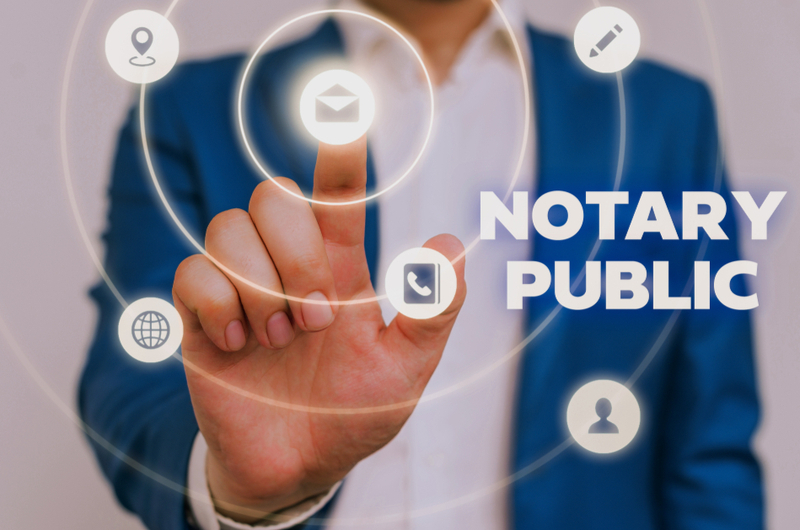Mobile Notaries Public: Find A Notary Near You!
Certain documents require fast notary services. Learn all you need to know how to get a mobile public notary to visit your location today.
Legal documents and contractual agreements frequently require notary services to be deemed witnessed and official. Such documents might include mortgage agreements, travel consent papers and power of attorney forms. Certain forms and agreements requiring notary services are not time-restricted but others are. For these and many other situations mobile public notaries are available to get your documents witnessed and legalized fast. Continue reading to learn what you need to know about mobile notaries public and find a notary near you today.

Explaining the Basic Role of a Notary Public
Notaries bear witness to and seal the signatures contributed by parties applicable to a written agreement. Essentially, their job is to serve as an impartial witness to two or more people agreeing to whatever terms are included in an official document or agreement. Document and agreement types vary greatly and will be discussed in more detail below. Still, the primary purposes of bearing witness include:
-
Verifying all parties are amicable to all terms in the document.
-
Verifying no party is providing a signature under duress.
-
Confirming all parties understand the nature of the document and terms for which they provide their respective signatures.
-
Demonstrating the legality of a document and its terms to any court or arbiter should the parties enter a formal dispute (via the notary’s official seal/stamp, date and time).
Please note: A notary public does not go so far as to question any party about his or her comprehension of every single detail and term in a document. Notaries are neither attorneys nor judges and have no authority to render a decision on the ultimate legality of a document or agreement. A notary public does have the right to refuse service if one or more parties involved appear(s) to be in duress or confused. A notary public will also keep a record of the title of the signed document or agreement (if applicable) or its nature and ask relevant questions as deemed necessary to complete the process with assurance and integrity.
Mobile Notaries Public Come to Your Location
In the past, if one required the service of a notary public it was necessary to travel to his or her office location. Today, and more especially since the advent of the COVID-19 crisis, notary services are becoming increasingly more mobile in nature. It is important to distinguish between the services provided by a mobile notary and a remote notary, however. Remote notaries are legally commissioned notaries public who possess the authority to process notarizations online using live video conferencing sessions (with audio) and applicable digital signature tools. Mobile notaries travel to your location to provide notary services in-person. The American Association of Notaries echoes all (CDC)-issued safety protocol guidelines to mobile notaries across the country. If you have safety-related questions or concerns as a client, contact your mobile notary before he or she arrives to discuss an amicable procedure by which the notary services are to be provided.
Why Use a Mobile Notary?
Outside the convenience of having a notary public come to your location, what other reasons exist for using a mobile notary? Scheduling flexibility is one additional reason. When you travel to a notary you must arrive during their normal business hours. Some mobile notaries offer extended hours, which are beneficial for people who cannot get away from their own jobs to travel to a notary public’s office. A mobile notary service is also useful for people with disabilities or illnesses. This is especially true in situations where power of attorney documents must be signed but the party granting power of attorney is confined to bed at home, in a hospital or hospice facility.
Mobile notaries are also used for mortgage closing documents when the signatures of multiple parties must be procured. Homes and automobiles are both frequently sold online in modern times, which means buyer and seller locations might be out-of-state. A mobile notary is highly useful in situations where multi-state signatures are required to complete a sale or deal. Third-party mail services consist of companies, which mail products and promotional documentation on behalf of manufacturers and brands they do not completely own. The United States Post Office (USPS) forms PS 1583 and PS 1583-A are officially referred to as the Application for Delivery of Mail Through Agent and Application to Act as a Commercial Mail Receiving Agency respectively. Both of these forms require the stamp and signature of an agent or notary public.
Additional reasons to use a mobile notary include:
-
Signing a lease.
-
Signing a private recording artist/producer agreement.
-
Agreeing to terms of a private loan.
-
Lease guarantor forms.
-
Co-signatures on loans.
-
Private custody agreements between parents without court participation.
-
Document deliveries and courier services.
-
Trusts.
-
Wills.
-
Deeds.
-
Medical Documents.
The Process
A mobile notary public will arrive at your location at a designated date and time. Valid photo identification must be presented to the notary by all parties providing signatures. Applicable information from each photo identification will be logged by the notary as a permanent record. A cellphone or other picture-taking device might also be used to scan identifications instead. Each notary will examine the document(s) to be signed with a varying degree of thoroughness.
Essentially the notary will verify all copies of a document have the same number of pages. Along with matching signature and date information. The notary will also inquire as to the nature of the document. Each notary will also ask a varying number of questions pursuant to the document. The main intention of these questions is always to ascertain each party’s agree-ability to and comprehension of a document’s terms. Signatures will be provided by each party. The notary will then sign, date and stamp (seal) the document or documents, making it or them official.
In addition to mobile or traveling notaries, there are also online Notary services. A number of states in the United States allow for online notarization. Online Notary Center is one such online service. They offer one time services, such as notarizing a single document for $25, and recurring scheduled services, or bulk notarization services, all entirely online.
Typical Prices
Notary prices vary per state, with each state setting a maximum billable fee allowed. For example, the state of Maryland limits notaries public to charging $4 per original notarial act with an additional $1 per signature on each additional copy of the exact same document. Maryland also limits mobile notaries public to charging $5.00 for travel when required for a notarial act, and further binds them to mileage and reimbursement laws as set forth by the Internal Revenue Service pursuant to business travel. Other U.S. states permit higher or lower fees, however. For example, a notarial act in Illinois might cost only $1 but other states allow charges up to $10 per notarial act. Additional travel fees range between $30 and $60 or more depending on miles traveled.
Certified Notary Public - Requirements
To become a notary public one is required to pass background screenings, which are commonly performed once for each new year of active duty. Certain U.S. states require notaries public to obtain title insurance license, certifications and other additional credentials. This is especially true for notaries working in the mortgage industry or other industries handling highly sensitive documentation, personal information and data. If you are interested in becoming a notary public, consult the National Notary Association website for information on requirements in your state today.



